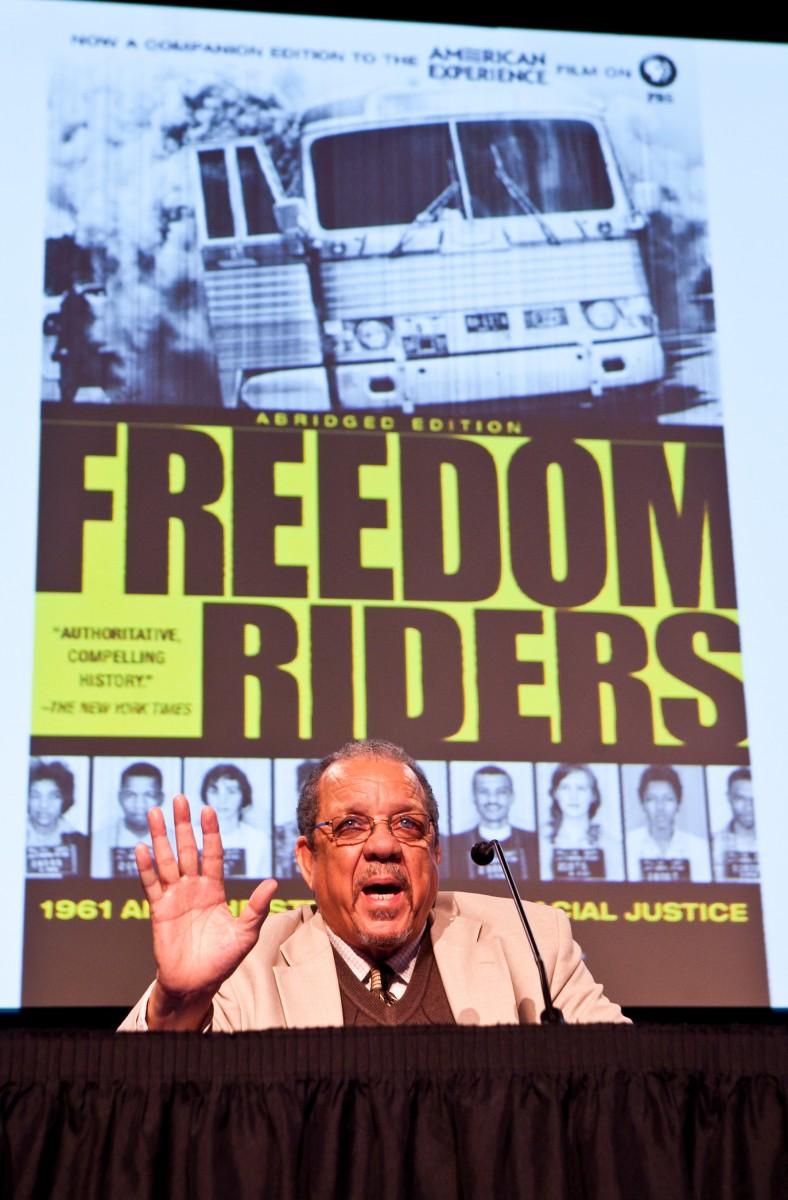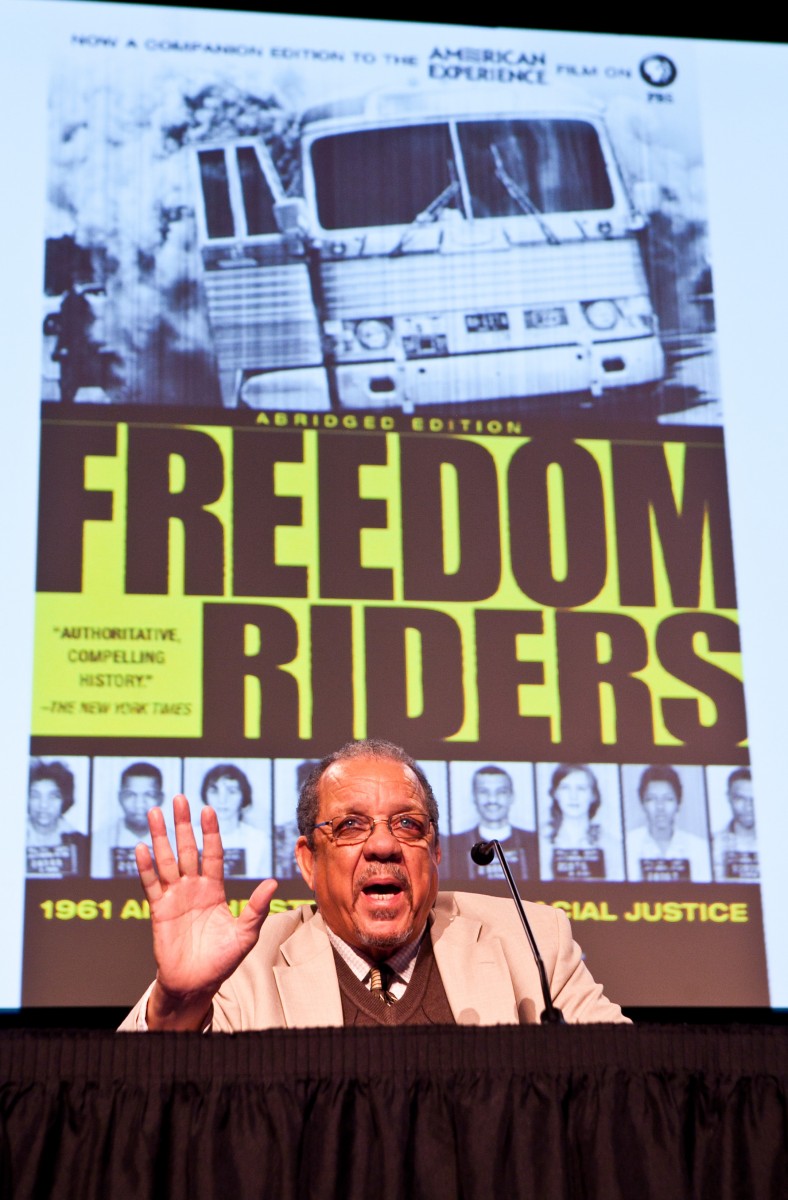NEW YORK—Motivated by widespread racism and with strict adherence to nonviolence, the Freedom Riders helped shape the Civil Rights movements in indelible ways. This year marks the 50th anniversary of the rides.
It began in 1961 with a group of 13 people, white and black, traveling together on buses through segregated states including Missouri and Alabama to confront racist attitudes and mindsets. More groups of activists, dubbed Freedom Riders, joined as the campaign ran into trouble in the Deep South. In the end, there were more than 400 riders.
“They would deliberately violate the segregation laws of the Deep South,” said Raymond Arsenault, author of the book “Freedom Riders: 1961 and the Struggle for Racial Justice,” in a documentary based on the book. “It was very likely they would get arrested, they might get beaten up, and they might even get killed.”
Nonviolence
“John Moody, one of the riders, eloquently states, ‘I wasn’t nonviolent, but I wasn’t suicidal,’” said one of the original Freedom Riders Lewis Zuchman at an Epoch Times-sponsored forum in New York on Tuesday. “We all understood that you’re not going to fight back against a mob of a thousand people, because when you fight back you incite them.”
Zuchman did not go through nonviolence training, but David Dennis, another Freedom Rider who also spoke during the forum, did.
Though riders viewed nonviolence differently—some as a tactic, some as a philosophy, some with little excitement—all of the riders adhered to it.







